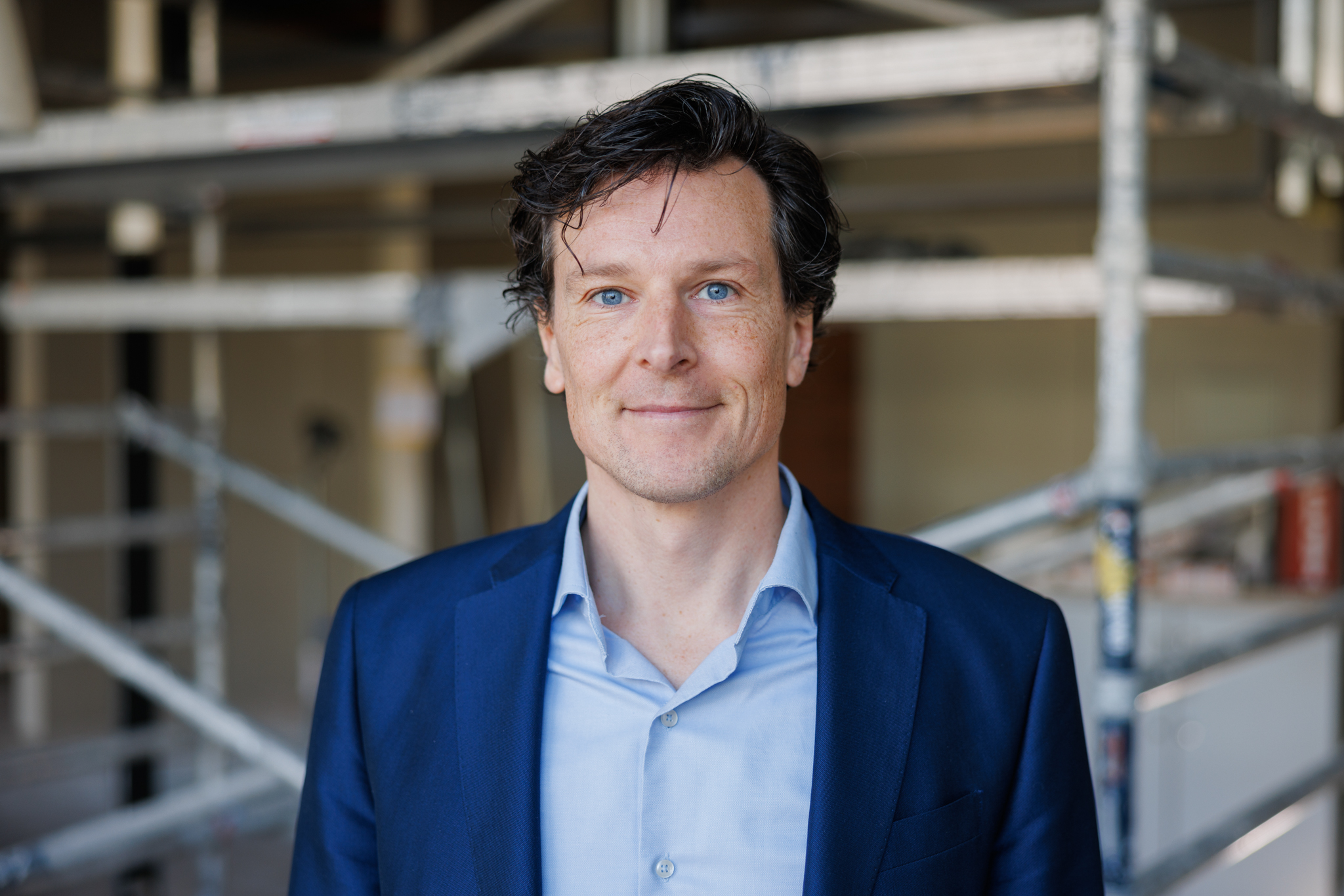Joost Muiser sees the implementation of the new Strategic Plan as a learning process
10 July 2023
As Deputy Director of Facilities & IT, Joost Muiser's responsibilities include impactful themes such as renewal of the working and learning environment, smart building, campus development and energy transition.

‘Co-creation is good for our commitment to the organisation’
As Deputy Director of Facilities & IT, Joost Muiser's responsibilities include impactful themes such as renewal of the working and learning environment, smart building, campus development and energy transition. ‘When I talk about the ambitions, I notice that students and staff get excited about this. It’s exactly there where the beginning of the co-creation lies that has been given such a big place in the new THUAS Strategic Plan.’
Joost Muiser works together with a great team. ‘That team is active at operational, tactical and strategic levels. This ranges from catering and cleaning to property policy, integrated security and procurement. We are concerned with today's and tomorrow's demand, but also with asking and steering how we will use our premises in ten years' time. Incredibly diverse, dynamic but at the same time sometimes quite complex.’
Housing
Asked about his priorities, he says: ‘It is not about my priorities or those of the team, but the priorities of the university of applied sciences organisation. In the new Institutional Plan, THUAS profiles itself on several important themes. These will also affect Facilities Management. The conversation I am having now with the Executive Board is where we are going to put our facilities focus for the next six years and how we translate that focus to the workplace. Where there is a balance between qualitative and quantitative goals in a changing but predictable environment. For myself, the multi-year accommodation plan is an important issue. The university of applied sciences has several properties, owned and rented. How do we deal with them? I can often be found in Poseidon, now largely an office building. Perhaps that will get a different use in the future.’
Matter for all of us
‘The direction set in the Strategic Plan is a result of a collective effort. Many people have contributed ideas about it. The implementation of those themes is also a matter for all of us. We need to search for even more of a connection in this. Look at the various knowledge centres we have. A collection of Centres of Expertise with various specialisms. Why should we hire external experts when we can also use the expertise of the Centres of Expertise? Working together on great things. Of course, everyone has their own agenda in terms of time and goals. Maybe things are going differently because of this. But we do create things together. That is good for our commitment to each other and to the organisation. We often underestimate how much in-house knowledge and expertise we already have.’
Changed question
‘The implementation is a learning process. We won’t in six years' time say: we have achieved everything. I think demand is constantly changing. The trick as an organisation is to continuously anticipate that changing demand. Take housing as an example. None of us could have foreseen the huge demand for hybrid spaces. Suddenly we were faced with Covid-19 and that demand became even more pressing. Looking at the multi-year housing plan, I know that the dot on the horizon in qualitative terms might be moved several times over the next few years. And that's okay. We need to be agile, but always with the dot on the horizon. And acting from the intention. In that learning process, mistakes will possibly be made. That’s fine, as long as we want to learn from them and if those learning points then lead to improvements.’
The trick as an organisation is to continually anticipate that changing demand
Joost notes that the energy transition is a train that is already moving. ‘Towards the end result, we still have a lot of steps to take. It's great that we can do that together with education and research, including Centres of Expertise Mission Zero. This allows us to use our learning ability as a knowledge institution. In the conversations I have here and there in all layers of the organisation, I notice that many have the will and motivation to jump aboard that moving train.’
Campus development
Enabling one's own learning ability also becomes relevant when it comes to campus development. ‘Then we’re talking about area development from the municipality of The Hague. On the one hand, we are talking about residential towers, including student housing, and on the other about greening. The area from Holland Spoor to the water will be greened. This is where we want to position ourselves as a university of applied sciences. How does THUAS want to stand in the city of The Hague? But what specifically does that question imply? To get a concrete answer to that, we as an institution need to take another step here. Learning from each other's knowledge, skills and insights. As far as I am concerned, the new Institutional Plan emphasises once again that we do it for each other and with each other.’